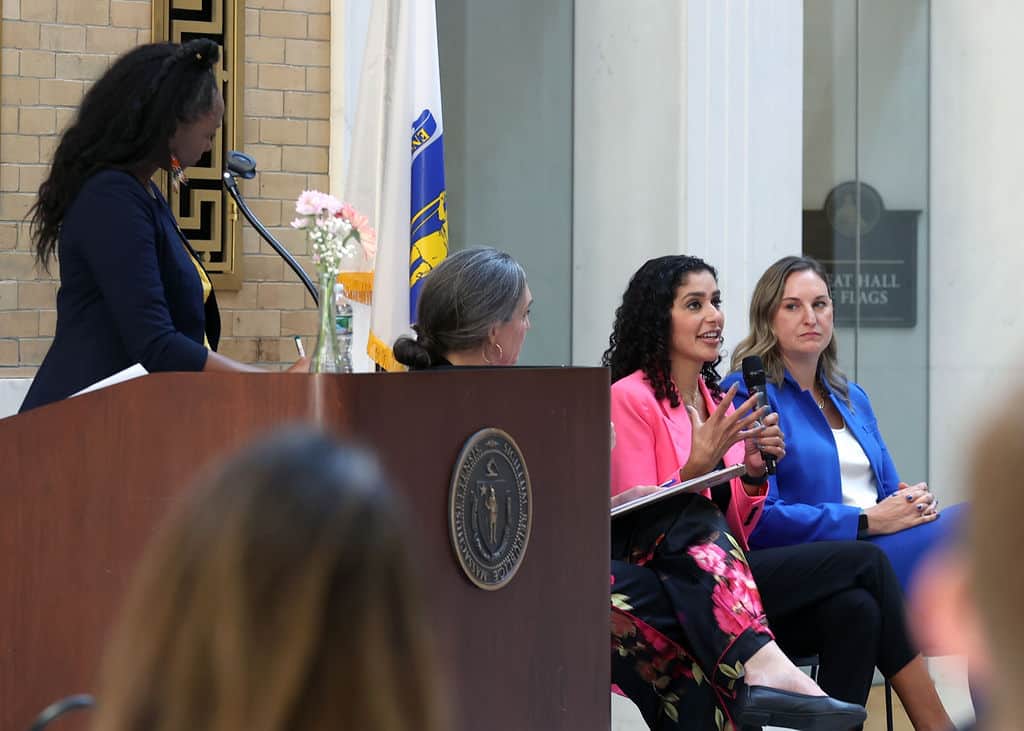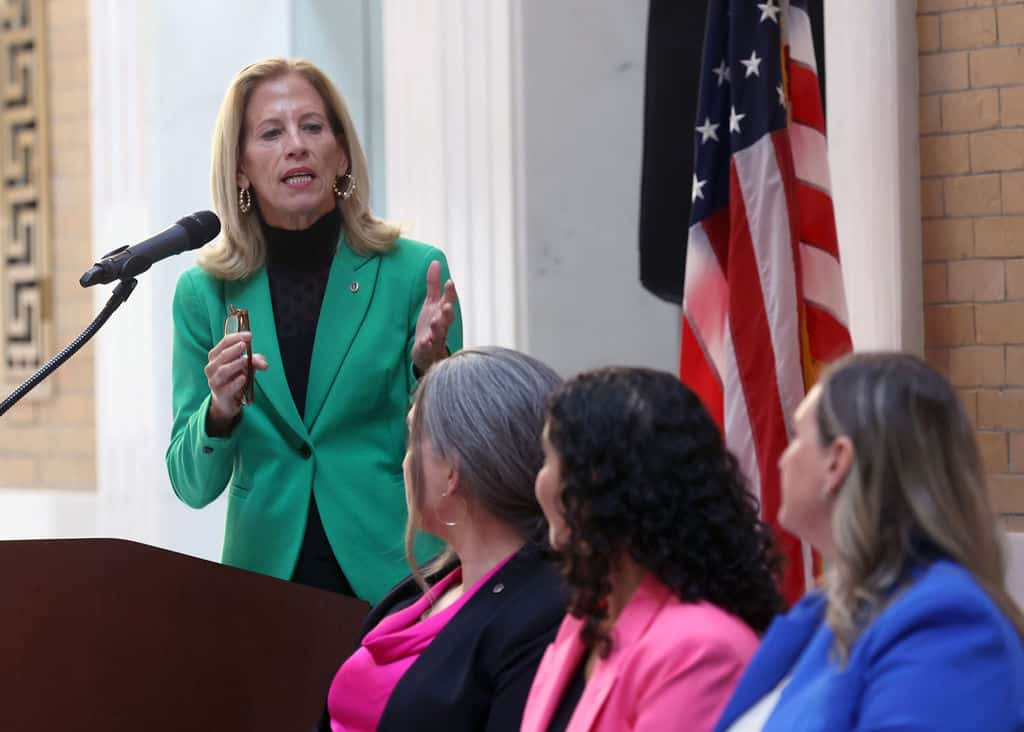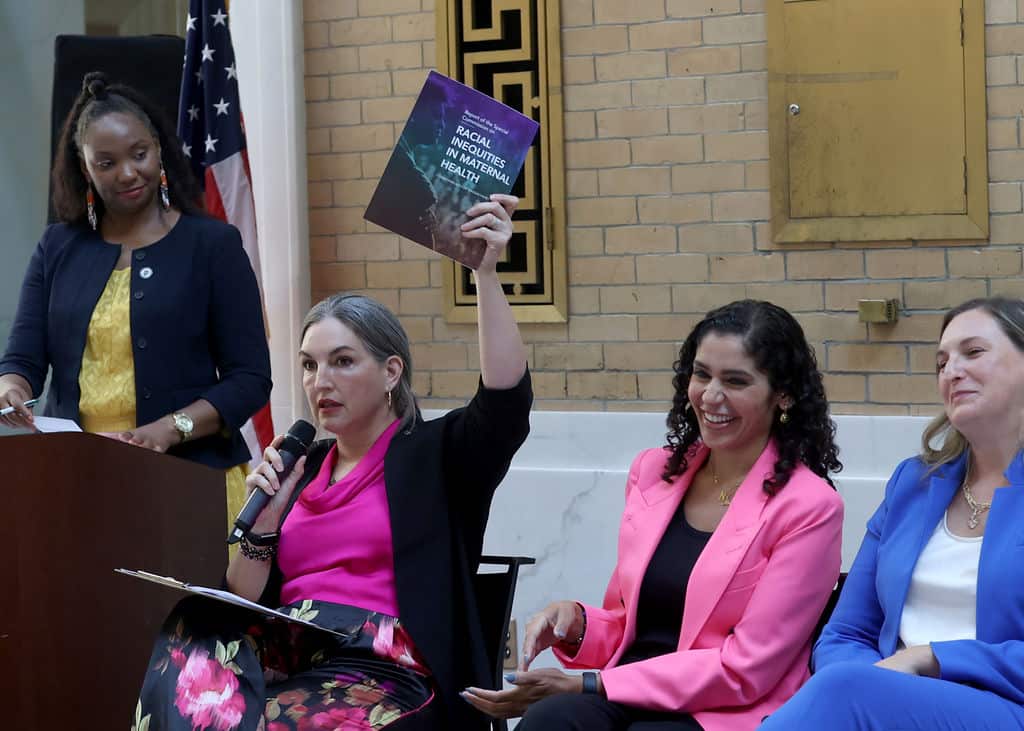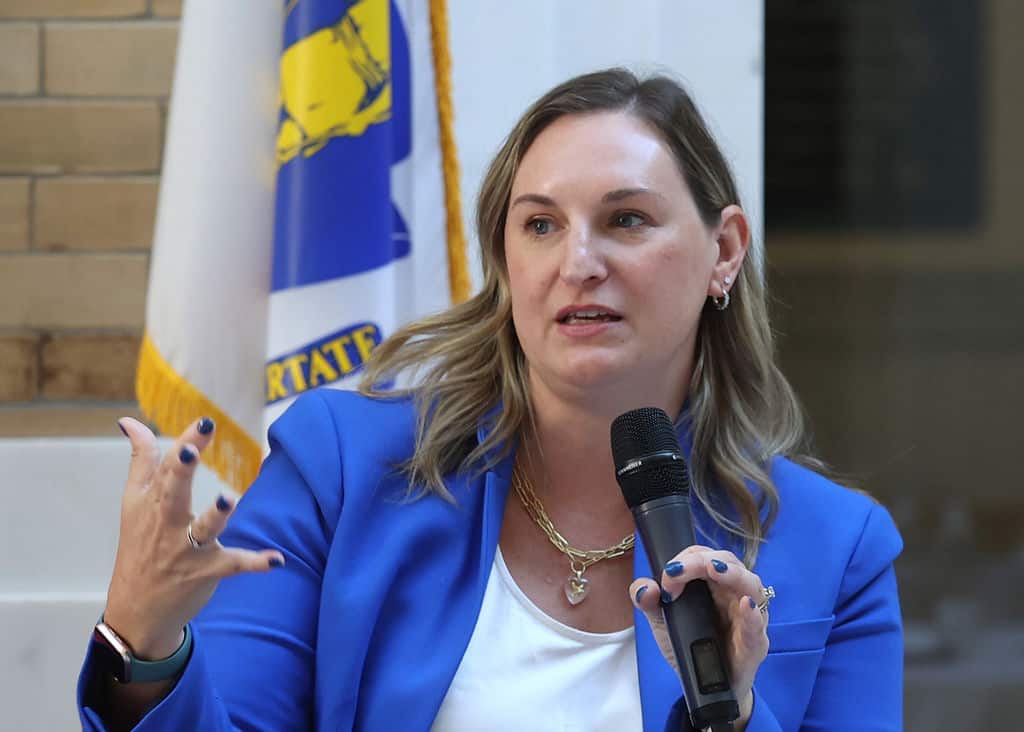
I often talk about MassBio as a convener – an engine for bringing together talented people, big ideas and powerful resources to help tackle seemingly intractable problems. Part of being a convener is finding the right partners. Collaborating with the Massachusetts Caucus of Women Legislators, which represents 31 percent of the legislature, we were able to bring together the health care and biotech communities, government leaders, and patients at the Statehouse for a long overdue conversation on women’s health.

The symposium on “Why Women’s Health is Different” was equal parts inspiring, thought-provoking and…maddening (I’ll get to why in a minute).
The panel featuring former state representative and Maternal Mental Health Leadership Alliance Founder Jamie Belsito, Equity in Heart Transplant Founder and Brigham and Women’s Hospital Cardiologist Dr. Nasrien E. Ibrahim, and Society for Women’s Health Research President/CEO Kathryn Schubert, was moderated by State Rep. Brandy Fluker Oakley. Kicking off the morning was Rep. Carole Fiola, who co-chairs the caucus with Senator Joan Lovely.
The guests shared invaluable insights into the myriad ways women’s health is viewed as “different.” Acknowledging that women’s health is different from men’s is important. Women have unique health-related needs, and to acknowledge and address them is a key principle of health equity. Treating health conditions that generally pertain to females, including fertility, maternal health, gynecology, and menopause with the importance and specificity they deserve can lead to improved health outcomes in women. This is also true of general health conditions that can affect women differently, such as cardiovascular disease, or disproportionately like migraines and osteoporosis.
But too often women are made to feel disempowered in conversations and crucial decisions about their health.
Belsito spoke from the heart about the difficult challenges she and many other women go through during and after childbirth, the urgent need for mental health resources for women, and that female anatomy and reproductive health are just snippets of a woman’s overall health picture.

“I felt isolated, alone,” she said, of times during her childbirth journey. “I felt that I was just there to give birth to a child or be dismissed if I didn’t have a viable pregnancy and that women’s health was still somewhere in a decade I couldn’t recognize. If that was my experience as a white-presenting, English-speaking, heterosexual, married [woman] living in a home in the suburbs of Boston, what did that mean for everybody else?”
There are also some sobering facts that show treating women’s health as “different” from regular health care can have adverse impacts on patients (buckle up, the data I’m about to share isn’t pretty).
With male physiology being the default in developing modern medicine for so long, women have been found to be 50% more likely than men to be misdiagnosed following a heart attack and more likely than men to die from heart attacks. As Dr. Ibrahim pointed out, even in emergency rooms, women are more likely to be misdiagnosed and have their symptoms minimized compared to men.
“I look at it through an equity lens,” said Dr. Ibrahim. “As a cardiologist, we see this all the time – women are misdiagnosed, women are more likely to be sent home from the emergency room…in every part of cardiology, from prevention of heart disease all the way to who gets transplanted, women have much poorer access.”
So much of this comes down to representation. About three-quarters of clinical trial participants are men (as Schubert of the Society for Women’s Health Research mentioned during the panel, the National Institutes of Health didn’t require women to be involved in clinical trials until 1993 and didn’t require female mice be used in research until just 2016!), so it shouldn’t come as a surprise that women are twice as likely as men to experience adverse events from drugs. Diversity in clinical trials goes far beyond representation and into tangible, adverse effects on women’s diagnoses and health outcomes.

In 2020, just 4% of all biopharmaceutical R&D spending went toward female-specific cancers, with just 1% (less than $2 billion out of $198 billion) going toward female-specific conditions.
Told you it is a little bit maddening, right?
But participating in this crucial conversation in the Great Hall of the State House with so many representatives and influential women in attendance, I felt inspired and invigorated, righteous but not frozen in my anger.
And here’s why: we here in Massachusetts are uniquely positioned to play an outsized role in addressing women’s health and advancing equity. We have more than 1,000 biotechs in the state with 18 of the largest biotech companies having a presence here. Our industry operates 6,000 clinical trials across 100-plus hospitals. We have the resources to prioritize and improve women’s health.
And what do solutions look like in practice? Working with our MassBio members, and grant-making entities like the Life Sciences Center, to increase the R&D spend on therapeutic areas that impact women exclusively or disproportionately and support the academic research teams with the same focuses. Advocating for policies at the state and federal levels that elevate women’s holistic health and wellness. Partnering with community organizations and hospitals on disease awareness and countering biases, especially in the treatment of patients. Getting more women into power-wielding roles.
As Dr. Ibrahim said during the panel, Massachusetts is viewed as the “Mecca of Medicine.” The changes in policy, representation, clinical trials and more that are enacted here are often adopted by the rest of the country.
Here in Massachusetts, we have the will. And where there’s a will – and, I might add, a woman – there’s a way.
Sources:
- Unlocking opportunities in women’s healthcare (McKinsey & Company)
- Women’s Health Initiative (MLSC)
- An economic case for a more women-centric health care system (Deloitte)